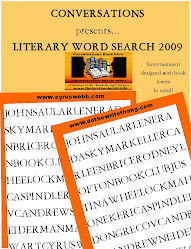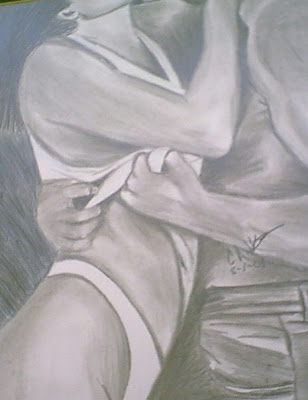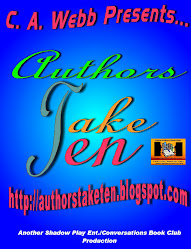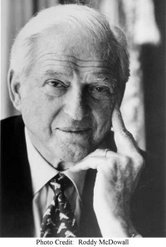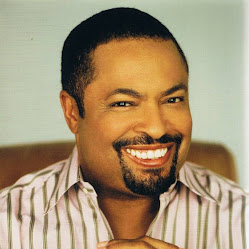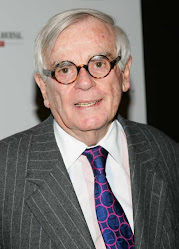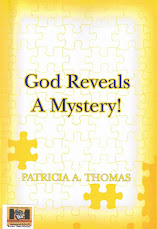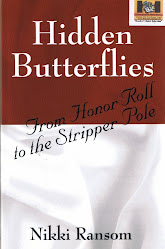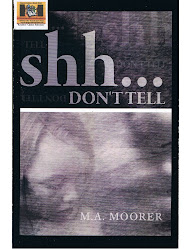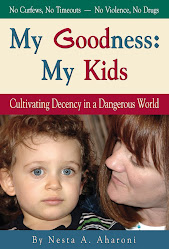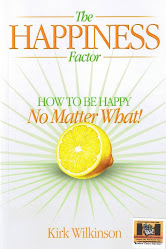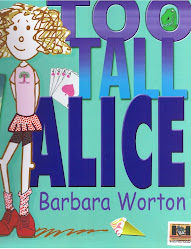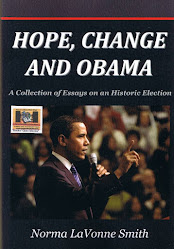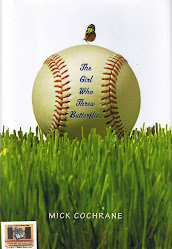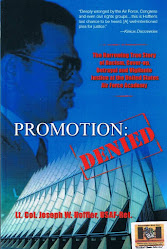 Never one to mince words---or shy away from a platform to raise awareness of today's social issues--- Bestselling author Caleb Alexander tells it like it is with little no apologies. The first author under Zane's newest venture, STREBOR ON THE STREETZ, he knows the life in which he writes about. There are few in the industry that can give you the raw emotions of this man. His passion for what he believes shines through, and he feels compelled to expose the dangers of the streets---whether you're ready to see it or not.
Never one to mince words---or shy away from a platform to raise awareness of today's social issues--- Bestselling author Caleb Alexander tells it like it is with little no apologies. The first author under Zane's newest venture, STREBOR ON THE STREETZ, he knows the life in which he writes about. There are few in the industry that can give you the raw emotions of this man. His passion for what he believes shines through, and he feels compelled to expose the dangers of the streets---whether you're ready to see it or not.
This Conversation is like none other that you will read on our website, in our magazine or hear over our airwaves. Alexander's narrative grabs hold of your mind and heart and doesn't let go...•
Caleb, thank you for taking out the time to talk with Conversations about your book EASTSIDE. Before we get into what inspired it, why don't you tell our readers a little about who Caleb Alexander is. You’re welcome. I want to thank Conversations for having me. I really want to get over to Mississippi and do a reading and hang out with you. My neighbors are from Mississippi, and they go home regularly, and they are dying to show me their home state. I was actually over in Mississippi a few months ago. I spent the night in Jackson. The state is really beautiful.
To answer your question about who Caleb Alexander is, wow, that’s difficult. I believe, I’m still finding out who I am, little by little, with each passing day. I know the person whom I aspire to be, and I know that I’m not there yet. Right now, I’m a loving husband, a doting father of three, a prolific writer. (I do a lot of ghost writing.) Let’s see. I love my Spurs, and my Dallas Cowboys. I guess one of the things that define me the most, is my love of writing, and my passion for my people. I have combined these two loves into one, and I love to tell stories about my people. James Baldwin once said, “It is the responsibility of the writer, to excavate the experiences of the people who produced him.”
I try to tell stories about our experiences. I try to tell stories about our humanity, and all that that entails.
•
Do you find that the environment you grew up in did more good to you than harm? What made you so different than the many who have taken the wrong road in life? Well, actually, I was raised by my grandparents. I had the benefit of a great education. I grew up in probably the last generation where the teachers actually lived in the communities that they taught in. My sixth grade teacher lived across the street, my kinder, first, and fourth grade teachers all lived within a few blocks. We were a close knit community, located just outside of two military bases. The overwhelming majority of the community, was retired military. My neighborhood didn’t get tough, until my generation came of age, and messed it all up. What went wrong with my generation, I have no idea. Different ideas, different mentality, different period. I don’t know if it’s because of our experiences growing up in the eighties or what. I didn’t grow up rich, but I didn’t grow up poor either. I think that my experiences were different from most. I had a younger sister who was born with cerebral palsy, and she was the ambassador for the March of Dimes. I used to go with my mother and grandmother to the giant mansions, where these people were hosting fundraisers for the March of Dimes. In other words, I got to see that there was a whole other world that existed, outside of the hood. I was hooked. I wanted that world.
I wouldn’t say that I was different than the many who have taken the wrong road in life, because I too, have fallen for some of the traps that are out there. But in life, we all stumble, that’s almost a guarantee. Life is about learning. And we learn by living, and making the mistakes that living entails. But in the end, it’s not the falling, it’s what you do after you stumble and fall. Do you give up, or do you get up? I chose to get up. We have to make sure that we all get back up after a fall. We absolutely cannot allow ourselves to become a defeatist society. We absolutely cannot allow ourselves, as individuals, to become dejected, and to give up hope. I see that a lot in the inner cities; Indications of defeatism. Many people walk around like, this is my life, this is my station in life, so be it. There’s more out there. The world is bigger than the hood. I believe it’s just a matter of education and exposure. Primarily education.
I also had the benefit of having some friends from different parts of the world. And it was these friendships that allowed me to gain an international perspective of things. It was through these friendships that I was exposed to Cheikh Anta Diop, Ben Jochannon, Chancellor Williams, GK Osei, Francis Welsing, Anthony T. Broader, J.A. Rogers, and so many others. I started to understand my place in the world, and my responsibilities to that world, and to my people. I wanted to do more, and to be more.
•
What role did reading and writing play in your growth from a boy to a man? Wow! It was huge! Especially reading. It was reading on my own, away from college when my learning really began. In primary school, you are never taught about the history of your people, and their contributions to the advancement of humanity. World History books, for the most part, start with the Greeks and the Romans, and then jump over to the civilizations in Asia. The really good books, will glance over the Egyptians, but they won’t portray them as being Africans. And there is absolutely no mention of the civilizations of Ghana, Mali, Songhay, and the numerous other African civilizations. These are important, because they show our accomplishments as a people, as opposed to just individual accomplishments. For me, this knowledge, gave me shoulders to stand on, and the confidence to deal with any people, any time, any where. I knew that I could do anything that I set my mind to, because I came from a people, who did great things. Reading, made me understand that I belong to something greater than myself. That I am a part of a people and a community, that stretches back to the beginning of time. I think that if more of our youth is made to understand that, then they would understand their value and their worth, and the value and worth of others who look like them, and then it would not be so easy to pick up a gun and pull the trigger. When something has value, it’s hard to destroy it. Our young people have to understand their value, their place in the great cosmology of our history, their worth, and then, I believe, their greatness is inevitable. Can you believe I actually learned French at one time, just so I could read the original works of Dr. Diop? LOL.
•
Do you think you would have even chosen the literary road if your life had been any different? That’s had to say. I can easily say no, but then, it would be against my religious beliefs. I believe that God has a path for each of us to walk. If I would not have stumbled into writing in the way that I did, I’m sure that He would have led me to this path in another way. Many times in my life, especially when my path was dark and obfuscated, I would pray to God to use me for something. To make me an instrument. Maybe through my writing this is being done. From what I’m hearing, Eastside is reaching people. Mother’s are passing the book on to their daughters and sons. Hopefully, a difference is being made. If I could save one life, just one, or turn around one teen, then Eastside has done its job.
•
A lot of times on television we see the street life portrayed as something glamorous. How do you think this view of real life affects the young people who see it? I think that it’s sad when the street life is portrayed in such a way. And I think that the result of that glamorous portrayal, is a lot of kids in prison, and the cemetery. I don’t have a problem with showing street life, as long as it’s balanced. Don’t just show the millionaire drug lord, show the prison time, and the cemetery filled with all of the ones who didn’t make it. In Eastside, some of the main characters didn’t make it. Lil Fade didn’t make it. Too-Low didn’t make it. Frog, didn’t make it. I think that one of the most interesting aspects of the book, was that these kids didn’t see a future for themselves. In the hospital, Lil Fade told Travon that he wasn’t supposed to live past eighteen. And that’s the thinking with a lot of kids who grow up in these kinds of environments, they can’t see past what they are doing today, and so they don’t plan for tomorrow. Again, it goes back to a sense of despair, and a lack of hope for tomorrow.
I think Eastside giving up the real deal on a lot of things, helps present a balanced side to the whole street life thing. I’ve had so many people tell me how real the story was, or how good the story was, because it was so real. Many people have told me that while reading Eastside, they were transported to another world, and that it’s like they were right there. I sincerely hope that the book gives young people a balanced perspective on street life. Honestly, I hope that it scares the bejeezus out youngsters, and keeps them from wanting to participate in this kind of activity.
•
I'm sure one of the questions you get a lot is how you were able to team up with Zane. Do you mind telling us? I contacted Zane. The funny thing is, I would send materials to other publishing companies, who would then buy the books outright for other authors. I had been ghost writing for some time, but doing that, I was never able to build my own name into a brand. I wanted a deal for myself. So, I contacted Zane, and we hit it off well. I sent her a broad sampling of material. She said that she wanted to sign me. I remember asking her which book she wanted to publish, and her reply was, “All of them.” She asked me which books did I want to do first, and since Eastside was the first book I had ever written, I wanted to do it first. I had held Eastside close for several years, and I was determined to not sell it to another author or a publishing company so that they could put it out under another author’s name. I had sunk so much into Eastside, and the book truly meant a lot to me. Zane used Eastside to launch her new line, ‘Strebor On The Streetz’. The rest is history.
 * In the book Eastside, the premise of the story seems to be the power of the decisions we make. Would you agree---and how can we go about as individuals and try and show those coming up that we are accountable for what we do in life?
* In the book Eastside, the premise of the story seems to be the power of the decisions we make. Would you agree---and how can we go about as individuals and try and show those coming up that we are accountable for what we do in life?I agree, one of the premises in Eastside, was accountability. These kids made some really bad decisions. But the tragic thing about those decisions, was the rational behind them. Survival, brotherhood, protecting my homies and my family, etc… Almost like the wrong execution, of the right idea. We rationalize away our decisions, instead of standing up, and taking responsibility for them. I think that we as individuals must lead by example. The generations after us, are just getting smarter and smarter. Kids these days are savvy. The PS3s, IPODS, MP3 players, X-Boxes, the movies, music, video games, etc… These kids are exposed to a lot of information at a really young age. And they are developing the ability to process tons of information at younger and younger ages, as time progresses. What I’m trying to say, is that these kids are sharp, and cynical. They have an in-built BS detector. So, just telling them, is not enough. Just going through the motions is not enough. You have to really walk the walk with kids these days. So, I think the best thing that we can do, is lead by example. Be accountable for what we say, what we do, how we react to everyday situations in our own lives. We can’t teach patience, if we shouting and cursing at every car that cuts us off, or cuts in between us on the road. We can’t tell our kids to read, if they don’t see us reading at home. In this day and age, sending kids off to school to learn, is just not enough. There is another level of education that our kids should be getting. School, is not going to teach our kids about violence, about God, about saving and investing, about patience, understanding, forgiveness. School, doesn’t teach our kids to dream, and dream big. Unfortunately, now days, school is about a law of averages. They are trying to herd as many through the system, as painlessly as possibly. Losses, are acceptable to them; even expected. They mentally place some of our children in an acceptable loss category, and write them off. Each of us, must stand up for our children, and make it our holy mission, to make sure that they aren’t written off as part of an acceptable percentage.
I do want to revisit the statement about Eastside being about accountability. I really think that the primary underlying premise in Eastside, was redemption. It was about second chances. Everyone wanted Travon to make it. Everyone was trying to redeem Travon’s life, everyone was trying to give him a second chance. Mr. Chang talked to Tre about getting away, and changing his life, Mrs. Davis wanted to get him into a college, and get him away from there. Even the young man whose life he saved at the concert, didn’t kill him. He told Travon to get out of the game, because he didn’t belong in it. Aunt Chicken, Elmira, and so many others throughout the book, kept trying to redeem Travon. God’s Grace and mercy can be found throughout the book. Even Travon fell down on his knees at that car wash and asked God, why does he keep getting second chances? Taariq, Darius, and finally, Lil Fade himself, brought powerful messages of redemption to Tre. I think the underlying message in Eastside, is that no matter what you’ve done, no matter what sin you’ve committed, the power of God is infinite. God’s grace and mercy is boundless. There is salvation to be found. I want kids to read Eastside and understand, that it’s never to late to turn their lives around.
•
Caleb, when the book was released recently did you feel in any way anxious as to how it would be received? In your mind, what was the worse case scenerio? I was extremely anxious as to how it would be received. I wrote Eastside years ago, and gang violence had declined significantly. And so I wondered if the book was still relevant. Well, unfortunately, there has been an upsurge in gang violence of late. But in the end, Eastside is about people. It is a chapter in our long history, and it needed to be told. It needed to be told, if only to serve as a historical record, if only to serve as a memorial to all of those young lives that were senselessly snuffed out, if only to tell the mothers, fathers, brothers, sisters, and children of those left behind, that we care. If only to let them know that they are not alone, and that their pain is understood. Eastside says to many people, hey, we survived a national tragedy, and now, it’s okay to go on with our lives. Eastside, is about survival, and that story, the story of survival, is never out of date. In my mind, I really didn’t have a worst case scenario. The book was finally being published, the message would finally be out there in public, so there was nothing that could go wrong in that sense. Maybe the publishing company has fears about books tanking. But me, I’ve been writing for years. It wasn’t my first published book, and it definitely wouldn’t be my last. I have six Essence #1 bestsellers, that I’ve ghostwritten for others. I didn’t approach Eastside with an ego, or any fears about sales. I’m a writer, I have a love for writing, for telling stories about my people. I pay my bills with my ghostwriting. Now with that said, don’t get me wrong, I would like to build my own name into a brand. I feel that I can write good stories about us, and build a base at the same time. I sincerely hope that Simon & Schuster allows me to tell good stories, to grow as an author, and to grow a large fan base.
* And now that the reviews have been coming in, can you give us an example of something a reader has said that stuck by you? Definitely. I’ve had mothers hug me, and tell me stories about the sons they lost to gang violence. I would love to do a documentary on the subject. Talking to mothers who lost their children to gang violence, and then talking to the kids who pulled the trigger. A lot of what they said to me, was about closure. And about getting the message out there to other kids. I think the definitive statement about the book, or the conversation that I had that resonated the most, was with a young man in his early to mid thirties. He said that it was only after he read Eastside, did he realize the scope of the destruction, that he had participated in. I have people tell me all the time that they cried while reading the book, but that statement about realizing the scope of the destruction that he had participated in, has always stuck with me. I think that Eastside really forces people to think about their actions. And for those who sat idly by while the destruction was taking place, their inaction.
•
Thank you so much for your time, Caleb. If our readers want to find out more about you, the book and upcoming projects, how can they reach out to you?Thank you. I want the readers to look out for Two Thin Dimes, a light-hearted, romantic comedy. I wanted to tell a fun story, after Eastside, and so I wrote Two Thin Dimes. It’s a great book, to relax with. That book comes out, Jan 8th, 2008. Also, look out for Big Black Boots. It’s a huge story, with a wonderful message about race relations, about redemption, about survival. It points a glaring light at America’s prison system, and the brutality, racism, and violence that goes on inside. It’s a HUGE book. Also, look out for When Lion’s Dance. I believe that When Lion’s Dance is my greatest work to date. It is literary fiction. The story of an African American woman’s life. It opens with her at her son’s funeral (He was killed in Afghanistan), and then it goes back and spans some fifty years. From her childhood, through the Civil Rights Movement, all the way to present. It’s a big story, and a beautiful story, told in a very lyrically beautiful tone. It is my thank you to African American women. Thank you to my grandmother, my mother, my great grandmother, and to all woman of color. It is my love note to them. A testament to their strength, and perseverance. Look for those books. As for reaching me, you can email me at either
caleb@calebalexanderonline.com, or
CalebAlexander_1@yahoo.com. You can also reach me at . It been my pleasure to chat with you. We’ll definitely have to do this again sometime. And soon, I hope.
